
Recently, the election cycle in the United States has been one for the ages. At points, it’s been so explosive that it’s probably hard to resist picking your coworkers’ brains about their political viewpoints.
Curiosity aside, is the office an appropriate place to discuss your affiliation with Clinton or Trump? What about other political events? Should you be able to discuss your views about Brexit on the clock? How do you handle hot button subjects like these in a professional realm where neutrality is usually the status quo?
Workplace Policy
According to Holland & Knight Law, many employees and employers alike mistakenly believe the First Amendment to the U.S. Constitution guarantees “freedom of speech” at work.
The First Amendment applies only to government action and neither limits the rights of private employers to regulate employees’ communications nor provides any constitutional right for those workers to express thoughts or opinions at work. As a result, there is no constitutionally protected right of free speech in the offices and factories of private employers.
That being said, here’s a little from those in favor, or against allowing political discussion in the workplace.
- Those against: According to Liane Davey, author of You First: Inspire Your Team to Grow Up, Get Along, and Get Stuff Done, “Politics is very personal and we tend to hold our beliefs extremely strongly. No matter how much others try to influence us, we’re not likely to move our positions — if anything, we’re likely to retrench.”
- Those in favor: Patrick J. Egan, an associate professor of politics and public policy at NYU says even though the office might not be the easiest place to talk politics (if tactfully done) it might be one of the more productive spaces to do so.
According to Egan, the beauty of the workplace is the fact that you don’t have much control over the selection of people you interact with. “Chances are, your co-workers are not being selected on the basis of whether or not they agree with you politically … to the extent that we avoid these conversations in the workplace, we’re losing out on one of the few venues where we may encounter ideas that are different from our own.”
As you can see, these conversations can get murky, fast. Regardless of where you align on the political spectrum, should tempers flare at work, the following tips might help everyone keep cool:
- Never assume your coworkers (even the ones you are close to) will agree with your political opinions.
- Approach the conversations with an open mind and curiosity for understanding, rather than aiming to prove your point.
- Look for shared values and common ground.
- Be comfortable hearing opinions different from your own.
It might be best to implement policies stipulating employees only discuss subjects like these off the clock, whether that be during lunch or breaks.
Many of these subjects are nebulous and can quickly lead to long, winding conversations. To help combat that, Actsoft’s timekeeping function provides a means of tracking and monitoring the duration of breaks and lunches. While it might not be feasible to stipulate what employees can or can’t discuss (especially when they’re off the clock), it’s definitely possible to ensure those discussions don’t last indefinitely and everyone is back at work when they should be.
Unless carefully orchestrated, political conversations can potentially derail your workforce. Whether your company facilitates an area for those discussions depends, but regardless, those approaching these subjects require an open mind, a willingness to understand differing viewpoints, and a commitment to active listening.
Have any questions on how Actsoft can help you?
Call (888) 732-6638 or Receive a Live Webinar

















 Encore & Geotab Drive
Encore & Geotab Drive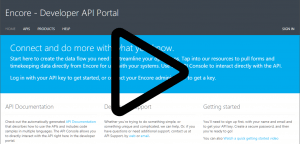
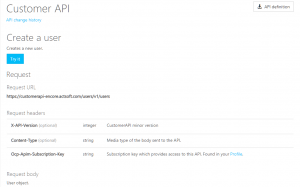
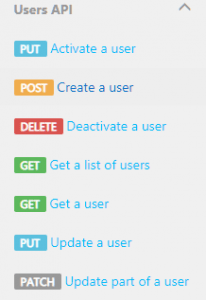


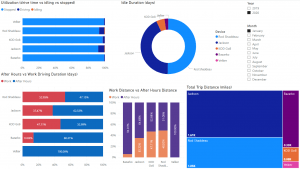
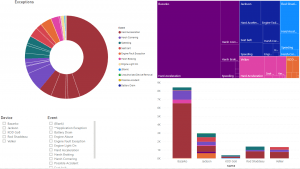
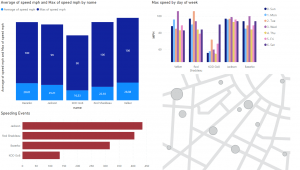
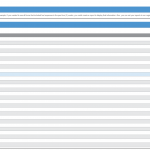
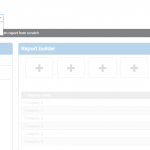
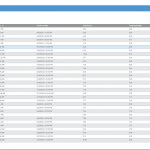
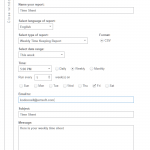





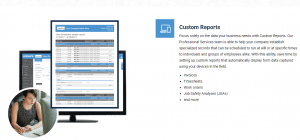
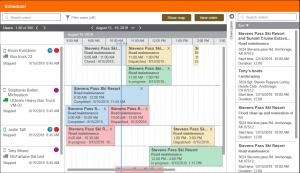


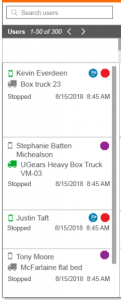
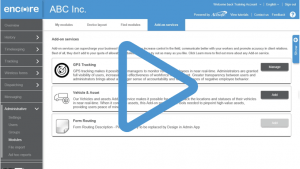
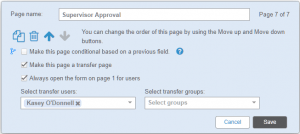
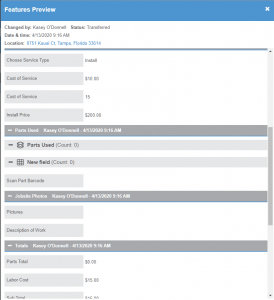
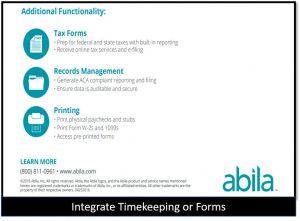
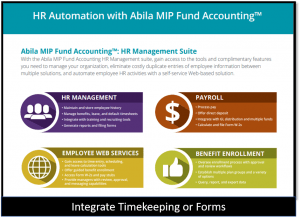

 Gain even greater insight into the daily activities of your fleet using the combination of Geotab and Actsoft. Geotab devices provide detailed data collection and seamless integration with our solutions; learn more about the ways your vehicles are being used daily with the power of this tandem.
Gain even greater insight into the daily activities of your fleet using the combination of Geotab and Actsoft. Geotab devices provide detailed data collection and seamless integration with our solutions; learn more about the ways your vehicles are being used daily with the power of this tandem.



 Actsoft partnered with Odin to provide our solutions overseas, through payment processing integrations. Odin helps us support user management for our software; customers can also purchase our products through Odin’s billing platform.
Actsoft partnered with Odin to provide our solutions overseas, through payment processing integrations. Odin helps us support user management for our software; customers can also purchase our products through Odin’s billing platform.

 VisTracks powers our Electronic Logging Device (ELD) solution, which enables transportation businesses to easily automate their hours of service logs, remain in governmental compliance, and reduce their potential to incur costly fines.
VisTracks powers our Electronic Logging Device (ELD) solution, which enables transportation businesses to easily automate their hours of service logs, remain in governmental compliance, and reduce their potential to incur costly fines. Integration between Actsoft solutions and BeWhere’s software products is available. Take your team’s asset tracking, cellular data connectivity, and field insight a step further with effective, cross-application compatibility.
Integration between Actsoft solutions and BeWhere’s software products is available. Take your team’s asset tracking, cellular data connectivity, and field insight a step further with effective, cross-application compatibility.
 CalAmp tracking devices for vehicles and assets alike are compatible with Actsoft solutions, making it easy for you to efficiently monitor your equipment and fleet cars. Help your team enhance accountability, safety, and savings through a combination of easily installed hardware and intuitive software.
CalAmp tracking devices for vehicles and assets alike are compatible with Actsoft solutions, making it easy for you to efficiently monitor your equipment and fleet cars. Help your team enhance accountability, safety, and savings through a combination of easily installed hardware and intuitive software.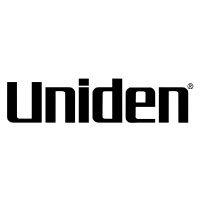 Our partnership with Uniden is ideal for companies looking to gain advanced diagnostics on their fleets. Uniden’s extensive product listing of car electronics like radios, dash cams, radar detectors, and in-vehicle communicators work in concert with Actsoft’s solutions to better connect your vehicles to the company headquarters.
Our partnership with Uniden is ideal for companies looking to gain advanced diagnostics on their fleets. Uniden’s extensive product listing of car electronics like radios, dash cams, radar detectors, and in-vehicle communicators work in concert with Actsoft’s solutions to better connect your vehicles to the company headquarters. Kyocera offers a wide range of mobile devices, ranging in design from traditional phones to ultra-durable handset technology. Actsoft is able to equip organizations in a variety of different industries with solutions for improved business, while Kyocera supplies the technology they can flawlessly operate on.
Kyocera offers a wide range of mobile devices, ranging in design from traditional phones to ultra-durable handset technology. Actsoft is able to equip organizations in a variety of different industries with solutions for improved business, while Kyocera supplies the technology they can flawlessly operate on.

 Our software is the perfect complement to Apple’s user-friendly technology. Equip your workforce with the devices and solutions it needs for optimized productivity during daily operations with Apple and Actsoft.
Our software is the perfect complement to Apple’s user-friendly technology. Equip your workforce with the devices and solutions it needs for optimized productivity during daily operations with Apple and Actsoft.
 Actsoft and Sanyo teamed up to merge intuitive business management software with the technology of today. This partnership allows us to provide you with all the tools your team needs for improved workflows, better coordination, and optimized productivity.
Actsoft and Sanyo teamed up to merge intuitive business management software with the technology of today. This partnership allows us to provide you with all the tools your team needs for improved workflows, better coordination, and optimized productivity. Motorola’s mobile technology works in tandem with our solutions to provide extra versatility to your business practices. Coupled with our software’s features, Motorola’s reliable devices make connecting your workforce simpler than ever to do.
Motorola’s mobile technology works in tandem with our solutions to provide extra versatility to your business practices. Coupled with our software’s features, Motorola’s reliable devices make connecting your workforce simpler than ever to do. We’re able to bundle certain solutions of ours (including our Electronic Visit Verification options) with Samsung devices to help your team achieve as much functionality as possible, while keeping rates affordable. Use these combinations for accurate recordkeeping, improved communication, and smarter data collection in the field.
We’re able to bundle certain solutions of ours (including our Electronic Visit Verification options) with Samsung devices to help your team achieve as much functionality as possible, while keeping rates affordable. Use these combinations for accurate recordkeeping, improved communication, and smarter data collection in the field.